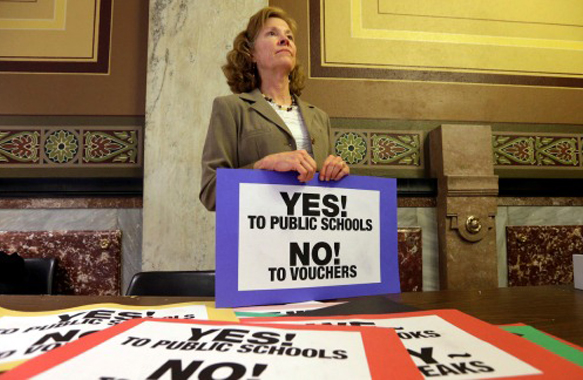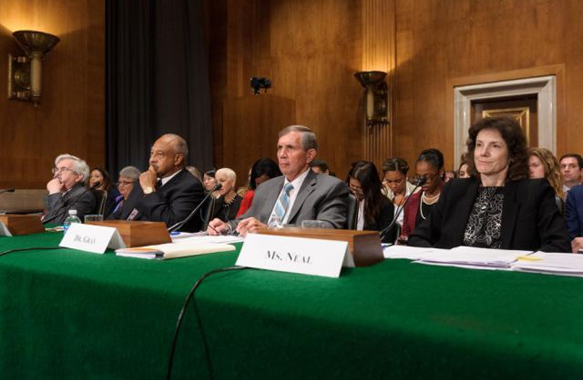Originally Published at Education Justice. December 13, 2013
On December 11, 2013, plaintiffs in Hart v. State of North Carolina asked the Superior Court there to declare the state’s new voucher law unconstitutional. The Complaint, filed by parent-taxpayer plaintiffs, cites several provisions of the North Carolina Constitution that establish student and taxpayer rights, and responsibilities of the State.
For example, Article I states: “The people have a right to the privilege of education, and it is the duty of the state to guard and maintain that right.” Article IX states: “The General Assembly shall provide by taxation and otherwise for a general and uniform system of free public schools, which shall be maintained at least nine months in every year, and wherein equal opportunities shall be provided for all students.” Article IX further states that various state revenues “shall be faithfully appropriated and used exclusively for establishing and maintaining a uniform system of free public schools.”
Plaintiffs allege that the voucher law violates these provisions because it diverts State tax revenue from free public schools to private schools.
Plaintiffs also cite Article V: “The power of taxation shall be exercised in a just and equitable manner, for public purposes only,” and “The General Assembly may enact laws whereby the State, any county, city or town, and any other public corporation may contract with and appropriate money to any person, association, or corporation for the accomplishment of public purposes only.”
Plaintiffs assert that the voucher law “violates Article V … because it transfers revenue paid by North Carolina taxpayers to private schools without any accountability or requirements ensuring that students will actually receive an education and thus does not accomplish any public purpose.”
Plaintiffs ask for a declaratory judgment that the voucher law is unconstitutional and a permanent injunction enjoining implementation of the law. For additional claims, see the Complaint.
When North Carolina’s voucher legislation was introduced, and the new law was passed in May 2013, numerous articles expressed concerns that:
- vouchers will drain funds from public schools;
- student achievement in voucher schools can be expected to be low, based on poor results in the largest and longest running voucher programs in Milwaukee and Cleveland;
- voucher schools are not required to follow state or federal law for students with disabilities;
- voucher schools are permitted to discriminate in student admissions on the basis of race, gender, income, disability and religion;
- voucher schools can hire unlicensed teachers and are not required to conduct criminal background checks of employees;
- voucher schools do not need to be accredited, will not be monitored by the State Board of Education, and are not subject to open public meeting laws.
Related Stories:
- North Carolina Takes a Giant Step Backwards on Education
- Latest Race-to-the-Top Grants Go to States at Bottom on School Funding Equity
- Charters and “Choice” Increase Segregation and Reduce Achievement for Black Students in North Carolina
Education Justice Press Contact:
Molly A. Hunter, Esq.
Director, Education Justice
email: mhunter@edlawcenter.org
voice: 973 624-1815 x19
www.edlawcenter.org
www.educationjustice.org












Leave A Comment